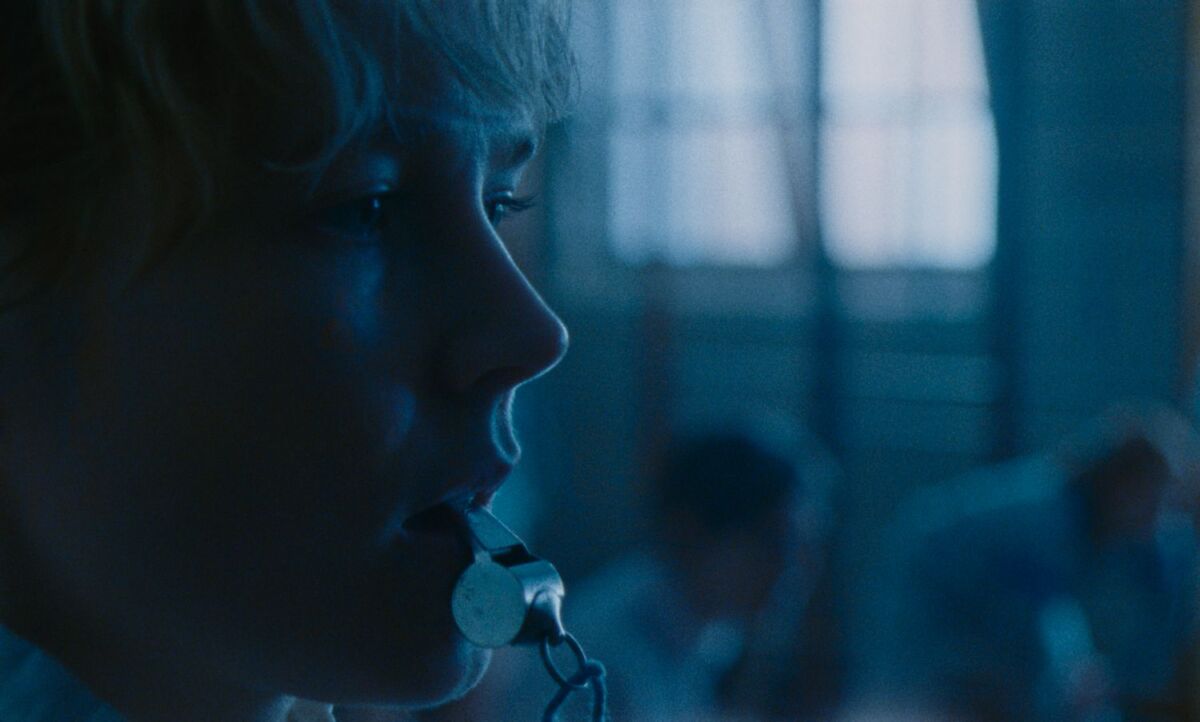Jean (Rosy McEwen) is a PE teacher as well as the teacher in charge of the school’s netball team. Her life is compartmentalised into two halves: there’s the public, straight-performing side, where she hides her queer identity, and there’s her rich, private life with her girlfriend Viv (Kerrie Hayes). In the backdrop of all this is Margaret Thatcher’s Conservative government and the law they’re about to pass, which stigmatizes gays and lesbians.
Jean keeps these two halves distinctly separate, and won’t even allow Viv and her other friends to attend Netball competitions for fear of discovery. Despite her family’s awareness of her sexuality, her sister Sasha (Aoife Kennan) can’t quite accept her queer identity, and her brother-in-law Tim (Scott Turnbull) seems worried about his son Sammy spending so much time with his aunt. The scenes between Jean and Sammy are actually the most touching moments of the movie, because it feels like Jean can just be herself with him, since he has no expectations of her.
The distinction between these two halves become difficult to maintain when new girl Lois (Lucy Halliday) joins the school. She immediately doesn’t fit in, and when Jean catches her at the gay bar she frequents with Viv, she’s hit with the realisation that these two compartmentalised sides of her life have just collided. Lois is now armed with information that could cause Jean to lose her job as a teacher if anyone at school ever found out. But all Lois wants from her is a role model and mentor, an adult figure who’s been through it and understands. Yet Jean can only react with apathy and distance – she cannot be who Jean wants her to be.
Jean’s experience resonates as much as it does because of McEwen’s performance. Every time Lois gets into a fight with one of her teammates, Jean forces herself to stay on the sidelines, and we see the conflict that rages within her, caught between the desire for safety or the embrace of truth. There are consequences either way, seen in the tensions that begin to plague Jean and Viv’s relationship as Jean’s desire to remain closeted results in Viv feeling like she’s being dragged back into the closet too.
The power of Georgia Oakley’s film resides in how personal and authentic it feels. Jean and Viv are just a regular, normal couple, and the romance isn’t presented in some star-crossed, dramatic way. Jean is flawed and not an inspirational hero. She never rises to the occasion to be what Lois expects of her, but she brings her into a world where she might get that from someone else.
Blue Jean also reflects that society may never be completely accepting of queer identity. There’s the political debate that rages on, Lois is an outcast at school because of her sexuality, and even at a children’s birthday party Jean is forced to listen to misogynistic viewpoints as well as tiptoe around her own identity. There has been progress since the 80s, but in some ways the world is still fairly similar now as it was then.
Jean’s journey in the film is about her own acceptance of self, and how powerfully gratifying it can feel to wake up to a world where you fully embrace yourself and everything you stand for. Blue Jean makes it clear that this isn’t an instantaneous process, but a path filled with gradual steps that will finally lead you to where you need to be.
Review screener provided.
READ NEXT: 15 Best LGBTQ+ Movies to Watch On Netflix
Some of the coverage you find on Cultured Vultures contains affiliate links, which provide us with small commissions based on purchases made from visiting our site.


